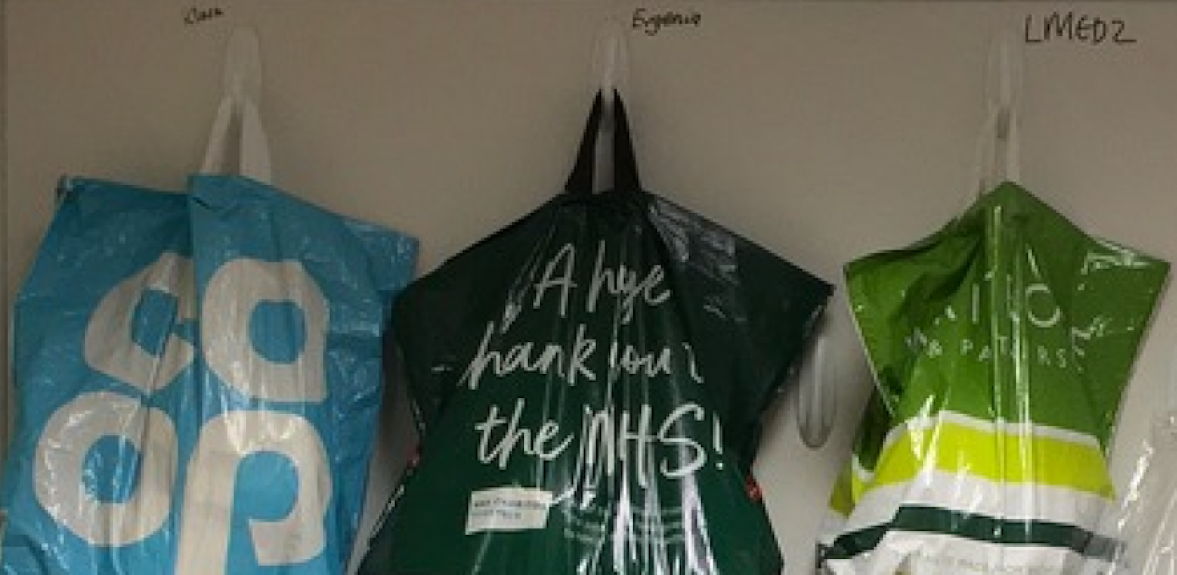
The traditional return of students in October was transformed by Covid-19, but the Department’s extensive preparations meant that teaching and research were able to carry on with a few key modifications.
Department Safety Officer Richard Turner has been advising research groups and Department members how to stay safe, and our NMR, Mass Spec and Stores teams have all set up new procedures for safely processing samples and consumables.
By following these procedures we’re all doing our bit to reduce the risk of spreading the coronavirus, and helping keep the Department open.
Up close and (not) personal
All large lectures are now on-line, and the adjustment of both lecturers and students has been surprisingly successful. “This has been pretty straightforward, because we were already involved in a pilot to record lectures that started three years ago, so we had a good system set up and in use,” says Head of Department Dr James Keeler.
In contrast, many of the small-group supervisions are being conducted in person. “We're aiming for face to face supervisions, and we're using the library, Cybercafé and U203 to help with social distancing," says James. "But we also have the option to go online if students or supervisors are self-isolating."
Lab practicals
“Thanks to the hard work of everyone involved, Part III projects are running as normal, although we’ve moved some synthetic projects to the teaching labs,” says James. “We’ve also made some small changes to the experiments and timetabling for Part II and Part IB Chemistry A & B practicals to comply with social distancing, but otherwise they are pretty much the same,” he notes proudly. “The main adverse effect is on the Part IA lab course, which for the time being is a series of exercises on experimental work involving videos of experiments, write-ups, and data analysis, which we feel are meeting the needs of the course.”
Research
Postgrads officially returned to the Department on the 1st of October, although many had continued their research throughout the summer, either in Cambridge or from different parts of the world. “We were quite keen to have a steady return of postgrads over the summer and early autumn, to ease the return, so even students who did not need to undertake experimental work but wanted to return to Cambridge were welcomed back,” explains James.
Kathleen Pickett, Dr Aruna Reddy and the postgraduate education team, and many others all worked hard on getting the new on-line registration up and running, which helped make the registration process safe and easy to administer.
Testing, testing testing
The Department at time of writing has had very few positive cases. “In each case their work area was quarantined for 72 hours, followed by additional cleaning and identification of contacts with the involvement of NHS track and trace. But I’m very happy to say that it does not appear that the source of the infection was in the Department, although of course we remain vigilant and continue to be rigorous about hygiene,” says James.
“Our policy remains ‘only come in if you have to,’” says James, and occupancy of the Department remains low. “Working practices must be safe, and we are keeping an eye on particular issues with ‘pinch points’ in the labs, and the way in which circulation leads to people crossing one another. We’ve done things like define maximum occupancy for group offices and instituting schedules for work space in the labs, and we’re still using a one-way system with face masks required in public areas.”
The precautions mean that some areas like the synthetic labs -- where working from home is not an option -- have been able to continue research at close to normal levels. “Our priority is to maintain a safe environment in which experimental research can continue,” says James.
“The good news is that service has resumed in the Cybercafé, which is a sign that we are back and we mean to stay!”
Visit the Department’s Covid pages for a complete update on what the Department and University are doing to prevent the spread of coronavirus.
Take care of your lab coats
Have you guessed what’s in the photo? That's right, it’s lab coats! Please follow these rules for lab coats:
- Store your lab coats in separate bags with your name clearly identifiable.
- Do not use someone else’s lab coat without cleaning it first.
- Clean your lab coats more frequently using the laundry service through Stores (collections and deliveries are onTuesdays and Fridays).
- Don’t leave lab coats exposed in labs, and move surplus lab coats to make space for individual bags.
- Dispose of lab coats which have holes or exhibit signs of significant contamination (eg, stains).
